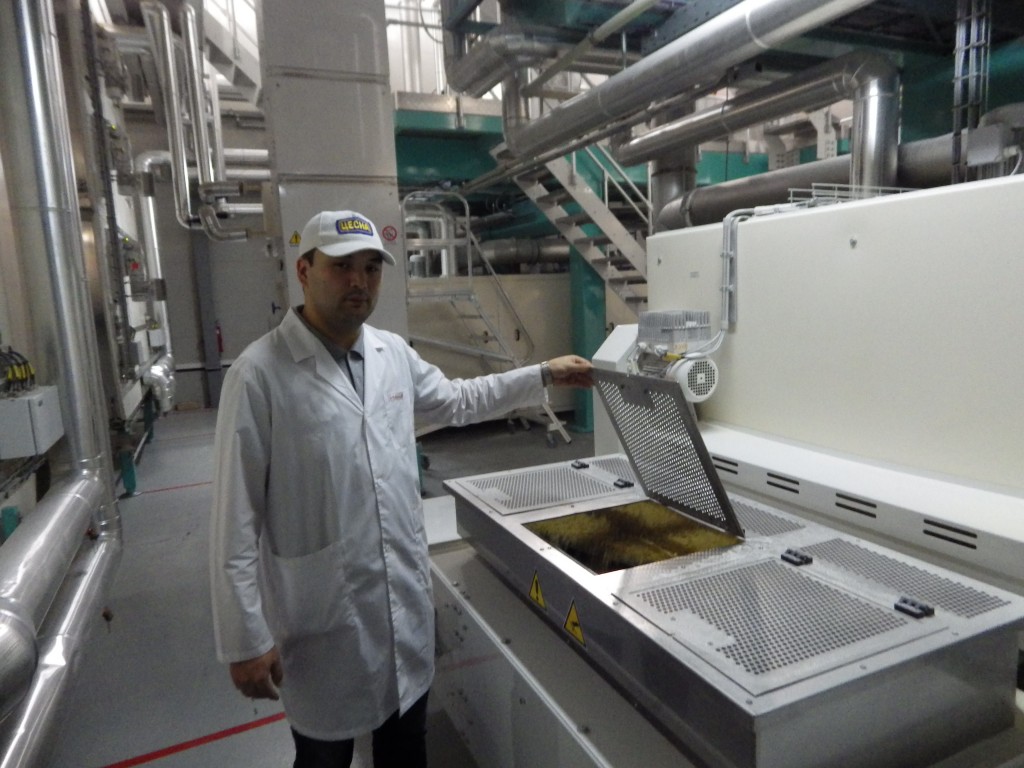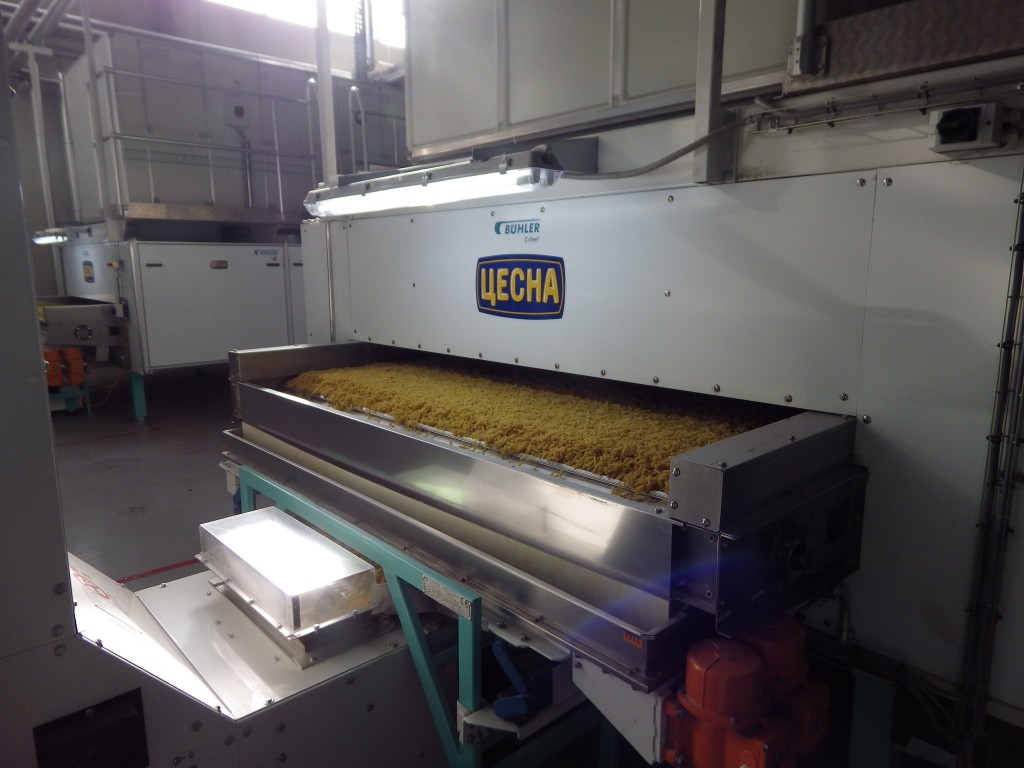ASTANA – Tsesna Concern, a major company in the Kazakh flour-milling industry and paste goods production and participant in the State Programme of Accelerated Industrial and Innovative Development, supports the nation’s food security and exports high-quality goods.
“It is well known that Kazakhstan produces one of the best hard wheat grains in the world,” said Tsesna Concern General Director Vladimir Likhtey in an Oct. 13 interview. “We are very lucky because we have such a raw material base, the ‘Kazakhstan Gold.’ Major farms, which were created in Soviet times, are developing well now. It would be shameful if we, the people in Kazakhstan, didn’t use this opportunity to produce high-quality products.”
“We understand that every state isn’t able to be a leader in every field and many states are usually specialised in some fields,” he continued. “I consider that Kazakhstan is extremely good in wheat grain production. That is why we are developing the flour-milling industry and paste goods products. Many companies in the state succeeded in this field in the last 5-10 years.”
Likhtey outlined the reasons for the company’s accomplishments.
“Our success is based on high-quality standards, using the best equipment in the world and, of course, the raw material we have in Kazakhstan,” he added. “I believe all successful companies have one common combination of components: a single-minded team of professionals, financial possibilities and good business relationships with suppliers, distributors, banks, government and clients. And we have such a balanced combination. We are very pleased to know our place in the market, but it is much more pleasant for us that other participants in the field and our consumers know us and understand our role,” he added.
Tsesna Concern’s achievements are interwoven with its suppliers and financiers.
“The welfare of farmers depends on our company’s welfare and even the banks we work with depend on our operation,” Likhtey said. “And it is very important to understand how much people are involved in this field of agriculture, flour-milling industry, paste goods production and, of course, consumers. Our government is very worried about food security. We also understand our responsibility of a being major producer of paste goods in Kazakhstan. Paste goods are relatively cheap products which are absolutely necessary for people.”
Likhtey noted Tsesna Concern is supported by the government, as the company’s operation depends directly on the complicated and typically unstable situation in the grain market.
“Every year the situation in the market differs. We are very pleased to know that our government is worried about us and offers different financial programmes with beneficial conditions aimed at improving financial liquidity. As of today, we participate in the Ondiris 2 (Manufacturing 2) Programme, the Business Road Map and programmes of the Ministry of Agriculture aimed at decreasing loans’ interest rates. I would like to thank the government for this aid,” he said.
The general director noted the abovementioned assistance does not mean it is easy to be competitive in the markets.
“Our rivals, for example, companies from Russia, are really good,” Likhtey said. “They do their best, purchasing hard grain in Kazakhstan, producing it in Russia and bringing their products here. Tsesna Concern constantly works on upgrading its own equipment, purchasing the best equipment from Switzerland and pursuing its main target – production of high-quality products. The company produces more than it can sell in Kazakhstan. That is why it exports its products to Kyrgyzstan, Russia, Tajikistan and Afghanistan. We want our Kazakhstan products to be popular and presented in many countries. We want our products and our brand to be acknowledged in foreign markets.”
The factory is outfitted with the most up-to-date equipment produced by Bühler, a company in Switzerland, Lightey explained.
“We have three production lines; each of them produces up to 3,000 kilogrammes of ready products per hour. Equipment for zhaima (a paste product which is used in Kazakh cuisine) production was specially designed for our plant. Fortunately, zhaima’s form is very similar to Italian lasagna au gratin and differs only by its thickness. So, the Bühler company had to change some specifications. Quality standards are very strict and we control the quality of our products very often according to a special guide,” said Tsesna Concern Processing Engineer Nauryz Idrissov in an interview on the same day.

